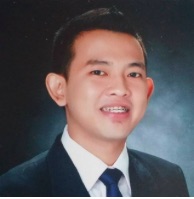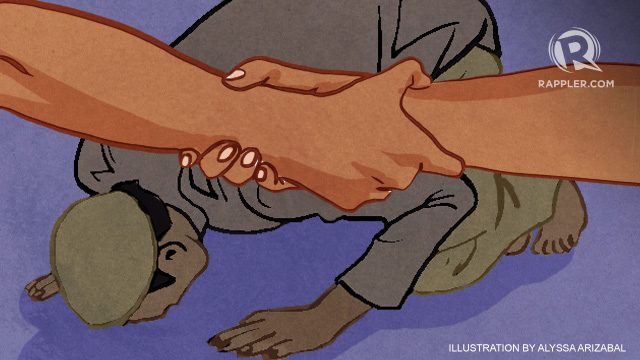SUMMARY
This is AI generated summarization, which may have errors. For context, always refer to the full article.
 For Muslims, Ramadan is a month of reflection. We are encouraged to enrich our knowledge of the faith in this Holy Month. In observing my 6th Ramadan as a balik-Islam, allow me to share my reflections on the faith and current issues that confront our world.
For Muslims, Ramadan is a month of reflection. We are encouraged to enrich our knowledge of the faith in this Holy Month. In observing my 6th Ramadan as a balik-Islam, allow me to share my reflections on the faith and current issues that confront our world.
Ramadan is the 9th month of the Islamic Calendar when the Qur’an was believed to be revealed. In this month, fasting was commanded among believers for them to feel the material condition of poverty. The end of Ramadan is marked by the day of breaking of fast known in Arabic as Eid’l Fitr. Fasting is instrumental in encouraging the believers to perform the next pillar of Islam – Zakat or charity. (READ: Feast of Ramadan ends but not lessons of fasting)
These pillars of Islam highlight the central goal of the Qur’an to establish an ethical, egalitarian social order. Therefore, when the objective of the Qur’an has already been realized, Ramadan and Zakat should cease to exist. To accomplish the message that “wealth should not circulate only among the rich” (Surah Al Hashr 59:7), Zakat as a form of tax was then levied. It was imposed to fund the activities of a state. The main purpose of Zakat is to ensure equal distribution of wealth – the materialization of the Qur’an’s economic policy. Yet today, it seems that this higher purpose was forgotten as Zakat came to be narrowly understood as a parochial tradition of alms-giving.
Economic equality in the age of austerity
Prophet Muhammad reportedly said that one cannot be a believer unless he wants for his fellow what he wants for himself. Like other faith traditions, the embeddedness of the self in society cannot be more emphasized in Islam. Human action and piety (taqwā) then becomes meaningful only within a social context. This makes it incumbent upon believers to look at the present conditions in the exercise of their belief. A friend who grew up in the Middle East once shared that one cannot compare the spirit of giving in Saudi during the time of Ramadan.
Which led me to ask, after about a millennium and a half of practice, how near have we gone in closing the gap between the rich and the poor?
Zakat must not be seen only within the confines of giving food and cash to the homeless down the streets, but believers must go beyond and inquire on the structures that perpetuate such conditions and exercise collective piousness to eliminate these structures. How do states today perform their job in distributing resources and wealth to the people? A look into the current political and economic situation of the world must guide our conscience in performing Zakat today. The recent furor on the Greek debt crisis and the austerity measures imposed on the Greek people reminds us of the situation of most of the countries in the world.
Capitalism and class divide

Austerity is just a symptom; it is the pointed tip of the iceberg. Linguist and political activist Noam Chomsky correctly labels austerity as, more than anything else, a class war – a violent war between the poor and the rich. In an era where huge economic gaps span not only individuals but have bulged in scope to define nations, imposition of austerity measures become a tool of the more powerful states to continue on a path of suffering for the larger population – a path towards the glorification of an economy that runs on greed. This has plunged the world into instability and debt, at the expense of social services for the people and the dignity of nations.
Austerity is a means of ‘paying off the banks, the perpetrators’ of the crisis. In no way can austerity pave the way for the recovery of a country already drowning in debt, yet it still remains as the go-to solution of rich countries. This is indeed capitalism and class war in its finest: the rich showing its fangs to further dry up whatever is left of the resources of the poor. This is a system that goes against the moral imperatives of our faith traditions – no sovereignty, no solidarity, no security, and no compassion.
The Pope and the “Evil’s Dung”
With his strong defense of the poor and his sharp critique against “structures of greed,” Pope Francis has gained the attention of the world, Christians and non-Christians alike. In his recent visit to Latin America, the Pope urged the poor to rise up against what he calls “new colonialism” in the form of corporations, free trade treaties, loan agencies, and the imposition of measures of “austerity” which always tighten the belt of workers and the poor.
According to Pope Francis, the laborers, communities, the people and even the Earth itself find this system intolerable – a system driven by “unfettered pursuit of money, which is the dung of evil.” This, for us, spells that unbridled capitalism is the root cause of the corruption of the Earth, and the polarization of the rich and the poor. (FULL TEXT: Pope hits capitalism, says future ‘in hands of people)
This prophetic vision is not at all new to Islam. The Prophet Muhammad (peace be upon him) denounced the gross economic and social inequality in Mecca at the time of revelation. In fact, this is the social context which propelled him to impose Zakat. The competition among empires which caused the Byzantine-Sasanian Wars is what he called fasād fil-arđ or “corruption of the earth.” Indeed, even Jesus (Prophet Isa in Islam, peace be upon him), in his discipleship with the poor (the fisherman, carpenter, tax collector among others), led a rebellion against the wealthy few – the Roman Empire.
In contemporary times, competition among empires led to monopoly capitalism: a structure of greed characterized by the combined economic, military, political, and cultural domination by fewer but more powerful states, assisted by local elites of dominated countries.
For Muslims, this is the context where we should see Zakat and our collective aspiration to fulfill the Qur’an’s goal of obliterating the rich-poor divide. The division is a systemic problem which will need collective effort that transcends our own community.
Muslim-Christian understanding
For many years, scholars have always searched for a theoretical basis for building solidarity between Muslims and Christians – one that is bigger than mere tolerance. Moro historian Samuel K. Tan noted that that the post-war Marxist-Leninist paradigm tended to be rigid and unaccommodating of religious perspectives, while the promising rise of “Political Islam” among
Muslim ideologues was later trapped into centuries-old friction between sectarian traditions. He argued for a dialogical perspective but lamented that ideological confluence between the two faith traditions lacks optimism. The imperative of missionary work or evangelization of ‘the other’ might be difficult to surmount for the sake of dialogue.
With a disastrous picture of the world becoming clearer to us, and with the sharp analysis of the Pope and his call to dismantle the roots of the disaster, it seems to me that the answer to Tan’s problem is the shared theological perspective between Islam and Christianity that has now become more apparent. Muslims should go back to the pillars of their faith seen in context, and Catholic Christians must return to their catechism so emphasized today by their Pope. By doing so, they will not only be able to nurture a mutual understanding but also develop a common spirituality of resistance towards liberation from structures that perpetuate social inequality.
For Muslims, it could be a one final Eid’l Fitr – a breaking of fast enforced daily on the impoverished majority, and proliferation of a new world order where all people can celebrate the bounty of life. Insha’Allah! – Rappler.com
Peter Paul Sengson is a youth peace activist. He started his advocacy when he converted from Catholicism to Islam back in 2009. He is the youngest member of the Leadership Group of People’s Forum on Peace for Life – a gathering of peoples of faith (Muslims, Christians, and Jews, among others) and an international movement for global justice and peace.
Add a comment
How does this make you feel?
There are no comments yet. Add your comment to start the conversation.